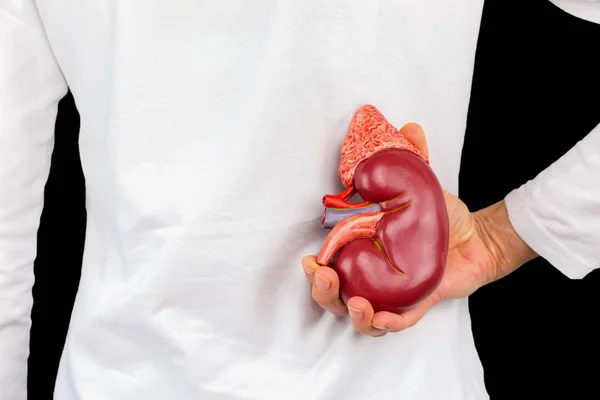Adolescent obesity has been identified and linked as a significant risk factor for early chronic kidney disease (CKD) in young adulthood. This is because obesity, particularly during childhood and adolescence, is associated with an increased prevalence and incidence of early-stage CKD.
Even individuals with high-normal BMI and without diabetes are at an increased risk of developing CKD. The purpose of this article is to explore the relationship between adolescent obesity and the development of early CKD in young adulthood, as well as to discuss the potential mechanisms and management strategies for this condition.Key points to consider include:
- Obesity is an important predisposing factor for CKD and end-stage renal disease (ESRD)
- Obesity in childhood and adolescence is associated with CKD and ESRD
- Higher baseline BMI is an independent predictor of ESRD after adjusting for baseline comorbidities, such as hypertension and diabetes
- The prevalence of overweight and obesity in the pediatric population on renal replacement therapy is increasing.
- Even adolescents with a high-normal BMI are at increased risk.
- These findings highlight the importance of lowering obesity rates in adolescents and managing risk factors associated with CKD.
The Study
- Led by researchers at Hebrew University of Jerusalem and Sheba Tel HaShomer Medical Center.
- Published in the prestigious JAMA Pediatrics.
- Analyzed data on over 593,000 Israeli adolescents.
- Found that adolescents with severe obesity were 9.4 times more likely to develop CKD than those with a normal weight.
- Increased risk was also seen for those with mild obesity, overweight, and high-normal BMI.
The study tracked participants for an average of 13.4 years, revealing that 0.3% developed CKD in young adulthood. Notably, the risk of CKD significantly increased with higher BMI categories:
- Males:
- Severe obesity: 9.4 times higher risk
- Mild obesity: 6.7 times higher risk
- Overweight: 4.0 times higher risk
- High-normal BMI: 1.8 times higher risk
- Females:
- Severe obesity: 4.3 times higher risk
- Mild obesity: 2.7 times higher risk
- Overweight: 2.3 times higher risk
- High-normal BMI: 1.4 times higher risk
These findings highlight the urgency of addressing adolescent obesity as a crucial public health concern. Early intervention and lifestyle modifications, including healthy diet and regular physical activity, can significantly reduce the risk of CKD and other chronic health complications later in life.
Implications
- This study is a wake-up call for the need to address the growing obesity epidemic among adolescents.
- Early intervention and preventive measures are crucial to reducing the risk of CKD and other chronic diseases.
- Healthcare providers should focus on managing risk factors associated with CKD in adolescents with elevated BMI.
Call to action
- Parents, educators, and policymakers should work together to create a healthier environment for adolescents.
- This includes promoting healthy eating habits, regular physical activity, and early screening for obesity and other health risks.
Long-term effects of adolescent obesity
The long-term effects of adolescent obesity are significant and encompass both medical and psychosocial implications. Adolescents with obesity are at a higher risk of carrying this condition into adulthood, leading to various medical issues such as cardiovascular disease, diabetes, hypertension, respiratory conditions, polycystic ovary syndrome, and kidney dysfunction. Furthermore, obesity in adolescents is associated with a range of social problems, including difficulties in securing employment, finding a partner, and increased risk of having children with obesity later in life. Psychosocially, adolescent obesity is linked to poor self-esteem, depression, anxiety, distorted body image, and strained peer relationships. These long-term consequences emphasize the importance of addressing and managing obesity during adolescence to mitigate its impact on both physical and mental well-being in adulthood. Study source
ALSO READ: New development on diagnosis and treatment of Ischemic cholecystitis









